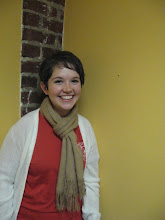My kitchen initiation didn’t come as fast as Phyllis’s. In fact, I had the opposite problem when I first moved here. No one would let me in the kitchen. It was always, sit here, drink this tea, while I prepare the supper. Always a guest. While this hospitality gesture was more than nice, it became frustrating that people were always serving me, when I had come under the guise of a “service” program. This is obvious lesson #1: one always seems to receive much more than they are given. It’s hard to take in, though, no matter what. Maybe the third month in, I was allowed to wash some dishes. That felt nice.
But this month, my ninth month here, I was asked and given full responsibility over: preparing the tea. A big deal, and actually a big honor, considering how essential the morning (or any time of day) cup of tea is. I had a minor panic attack at the responsibility. I usually take the easy way out with the tea bags mixed with milk and sugar, but they wanted the real deal: milk, tea leaves, using the sieve. I did not fail, though I made a mess. As all of us women took tea in the kitchen (instead of the living room/dining room/ “visitor’s room”), I was able to see clearly how far we had come.
You see, the kitchen is sort of where the magic happens. This time, we had four of us women preparing for a big family meal. The director of the school’s family has sort of a round-robin fundraiser where the host of the meal gets the family’s funds donated to them that month to help them in their educational/vocational/professional pursuits. We cooked and we cooked. Starting Friday night and ending Saturday afternoon… And we talked. And we laughed. We took several tea breaks. They chuckled at the way I sliced the cabbage. I was amazed that they never seemed to tear up while cutting onions. I learned their secret cooking tips, and was privy to family information I had never been exposed to previously. They praised me by saying I was now a “real African lady.” And I realized that I could not have earned this title any sooner. If I had some of those responsibilities in the beginning, I would have just been doing “work”- giving to them, performing service. I needed to first learn from them. “Slowly by slowly” (kiswahili, “pole pole”), by letting them know I was open to assisting where possible, they let me in. Eventually, it wasn’t me helping them or them serving me, but us be-ing in the kitchen together, enjoying each other’s company. We finally hit that sweet space of mutually benefiting from each other.
I think this is the main reason why I have been enjoying Kenya so much more in my final lap. No longer am I a foreigner, the mzungu, or that American. I’m Teacher (mwalimu) Deanna, or even Kendi in the Kimeru tongue and Wanjiku in the Kikuyu language. I feel connected, part of their culture. Looking back to YAV orientation, I remember talking about the different perspective changes we would go through. First, you would start out in “homeland”- which is when you compare everything to home, are still thinking in that direction. Then, there’s “wonderland,” where everything is new, exciting and amazing. Some naivete in this stage. What follows, I would insert, is “wander-land,” where you start to doubt your reasons for being there, when you question both cultures equally and are kind of lost. Then, finally you return home, but not the same one- to “new-found land.” I think I have arrived here at long last. It’s home, for all its ups and downs, quirks and good qualities.



No comments:
Post a Comment